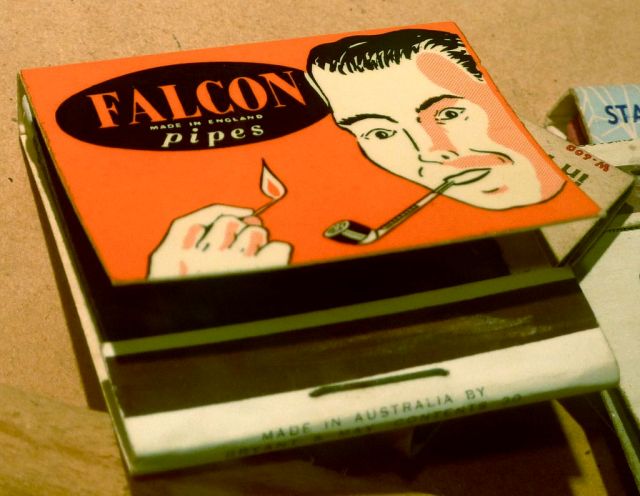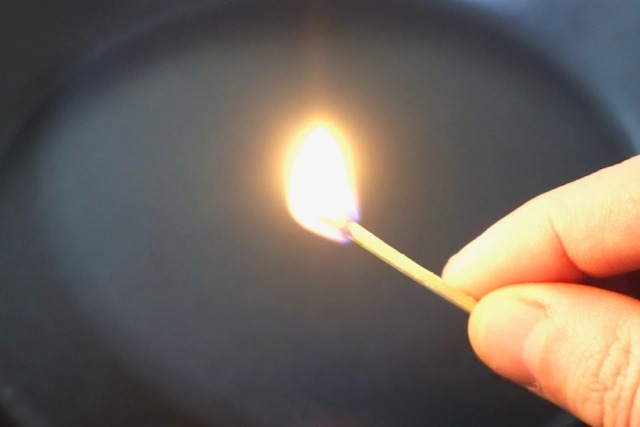Last of Japan-made matchbooks to end production this month

The once ubiquitous promotional tool snuffed out like a… What do you call those stick thingies again?
There was a time when walking into just about any place of business such as a restaurant or hotel, you’d be greeted by a bowl full of little paper folders containing a row, or rows, of flammable tipped sticks. Useful for pretty much all your fire-based needs, these matchbooks were once a great way for companies to add a little subtle advertising into your life.
▼ They were also great plot devices in movies
But it just dawned on me that I probably haven’t seen a matchbook in well over a decade at least. They just seemed to vanish so subtly over time that it largely went unnoticed. In fact, the only reason it came to my attention was a recent tweet by Japanese match producer Nittosha.
▼ “The books of matches that we’ve made for about 49 years will be discontinued at the end of the orders received in June. And with that, the light for making matchbooks will be extinguished from Japan… Thank you for using them at various shops as cheap, easy to carry ways for reliable advertising. It feels pretty lonely…”
弊社では約49年に渡り作らせていただいたブックマッチは6月受注分を最後に製造終了してしまいます。
— 株式会社日東社【公式】 (@nittosha) May 23, 2022
同時に、日本からブックマッチ製造の灯が消えることになります…安価で携帯しやすく、広告面もしっかりと取れる為、様々なお店でご愛用いただき誠にありがとうございました
とても寂しいです…。 https://t.co/5JoeRE9yoC
At first it may sound like Nittosha is being overly melodramatic, but their passion for matches might make more sense in historical context. In the latter half of the 19th century, just as Japan’s Meiji Restoration was gaining momentum and various cultural imports were entering the country, matches became a huge business. Production facilities were set up mostly in Hyogo Prefecture, where Nittosha was also founded in 1923.
By the first half of the 20th century, Japan had grown into one of the biggest exporter of matches in the world, along with the USA and Sweden. However, following World War II the use of matches began to give way to lighters for individual consumers.
Matches were far from giving up though, and producers here adopted the American development of the matchbook, giving the industry a major boost with a new promotional item that all kinds of businesses would buy in bulk. This continued until 1973, when match sales in Japan were said to have peaked. After that, the advent of disposable lighters began to eat away at the portable fire market share year after year, and match have reportedly plummeted 99 percent since the high-water mark in ’73.
▼ Disposable lighters had the added benefit of being able to stare at them for a long time while receiving messages from Oberon.

It’s understandable, though, for Nittosha to still hold a match-lit candle for the fond memories of when matches were a major part of the Japanese economy, and the good news is that this isn’t the end for them. Although they’ve discontinued matchbooks, they will still produce matches in other types of packaging which still have their uses, especially as a part of disaster kits or for disguising flatulent odors, which are disasters in their own special way.
▼ Safety matches sold in boxes are still widely used for lighting incense at ceremonies such as funerals and memorials.

There’s also a chance that someone might import matchbooks to Japan, but that will likely be a rarity. So, if you happen to have a Japanese matchbook, take good care of it, because it’s very soon to be history.
Source: Daily Shincho
Top image: Wikipedia/Tangerineduel
Inset images: ©SoraNews24
● Want to hear about SoraNews24’s latest articles as soon as they’re published? Follow us on Facebook and Twitter!
Credit:


0 comments:
Post a Comment